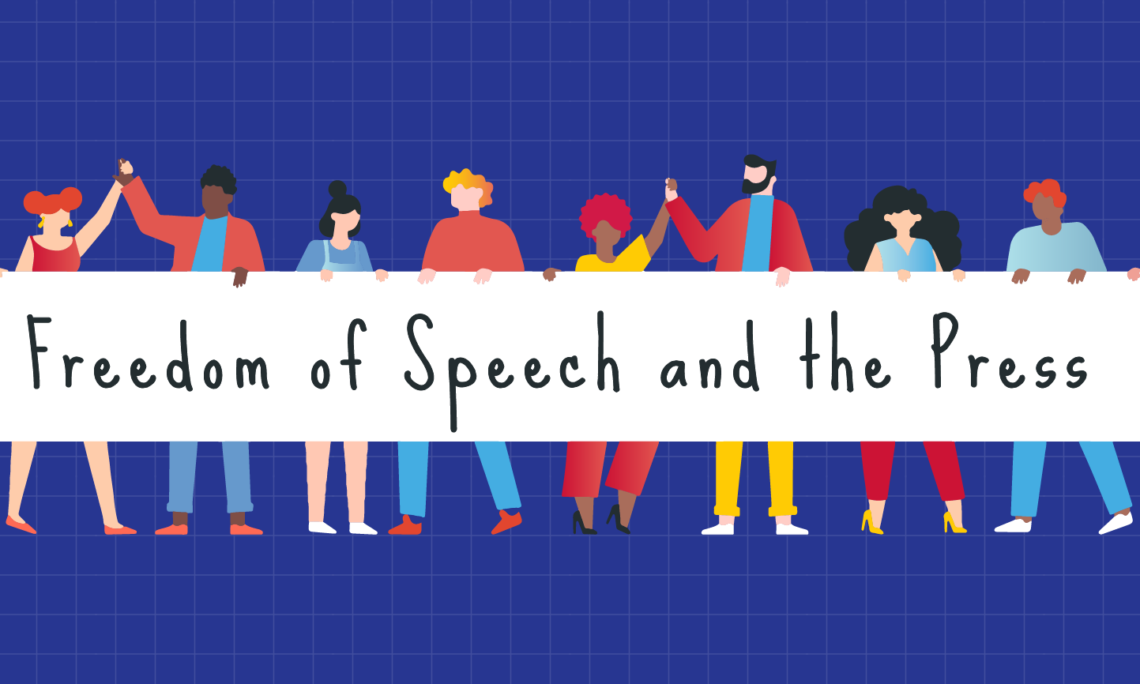By Lester Williams Jr, Contributing Writer
With society’s perspectives changing all the time, it’s unavoidable that old and new information in places like the education system is constantly endangered of being censored by the leaders of an institution and or the government.
Censorship, according to www.aclu.org, is when images and words are concealed; as a result, being labeled as inappropriate.
In an interview with Dr. Fern Aefsky, the director of graduate studies in education at Saint Leo University, she shares her opinion as an educator on censorship after a long history in education. Aefsky has had experience as a principal, teacher, and district administrator and working in three states over three decades.
“It saddens me that politicians are not thinking about how educational systems are the right place for children and adults to learn from and about each other. Differences are to be celebrated, not censored.” Aefsky said.
She mentions that politicians need to focus less on teachers and give more attention to safety concerns because, in the year 2018, there were over 99 shootings at schools.
The First Amendment of the United States is used to limit censorship in the educational system, as it ensures individuals’ freedom of speech.

When dealing with censorship in the education system, teachers should take the First Amendment into consideration because censorship requires teachers to consider the rules within the First Amendment as well as the issues from the people, groups, and companies when dealing with changes caused by factors like religion and science.
By remembering the First Amendment’s principles, teachers can help strengthen their argument when fighting against censorship by the administration. Yet, the U.S. still struggles with censorship issues leaving multiple Saint Leo University faculty members concerned.
“My educational philosophy differs greatly from what is portrayed in the media,” said Dr. Alicia Corts, an Assistant Professor of Theatre. “My job isn’t to indoctrinate students in any ideology but to instead guide them toward critical thinking skills that allow them to see information, assess its value, and make informed decisions for themselves.”
“By restricting topics that students can access, politicians are suggesting that the mere introduction of information is enough to somehow damage a student,” Dr. Corts added.
In the case of the U.S.’ education system, the International Bureau of Education claims that the system’s main goal is to ensure that children will be able individually to obtain their highest potential to be successful and effective members of society.
Despite its good intention, the U.S.’ education system faces pressure from censoring things like reading material by multiple different factors.
Some factors that the education system goes up against include administrators, parents, and school board members against students reading specific information. One example of information that has recently been challenged is the Critical Race Theory.
In an article by Education Week, Critical Race Theory is defined as a method for people to understand how the USA’s history with racism has altered the relationship between the country’s laws as well as the between relationship white people and people of color.
In the spring of 2021, the theory became a popular topic to debate, specifically concerning primary and secondary education. This theory has caught the attention of people such as Florida Governor Ron DeSantis who is against the theory being taught in institutions.
“It violates Florida standards to scapegoat someone based on their race, to say that they’re inherently racist, to say that they’re an oppressor or oppressed or any of that,” claimed Governor DeSantis in an interview from news.wfsu.org.
The actions of politicians like DeSantis have caused many people involved in the education system to question what the limits of censorship in the system should be.
“As an educator, I take seriously my responsibility to discuss meaningful and potentially sensitive topics in the classroom in ways that benefit students,” said Dr. Elisabeth Aiken, an assistant professor of English.
“The Florida bills that are rooted in anti-CRT discourse apply to K-12 schools only at this point.” Dr. Aiken added.
“While CRT is a legal framework, not literary criticism, I do contextualize texts in my classes, aiming for an interdisciplinary approach that may include discussions of interpersonal or systemic racism in an effort to better understand the moment in which texts were created and our response to them.”
Regardless of what side you’re on when it comes to censorship in the education system there is value in hearing both sides of the argument and making an agreement on how certain information should be taught to students.





